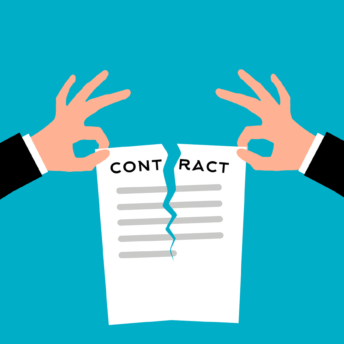A breach of contract dispute can occur where one party fails in their obligations under an agreed contract, which can then give rise to a claim for compensation or other remedies depending on the terms of the contract. Breach of contract can have a significant impact on the parties involved, and it is the far-reaching nature of this impact that can cause a breach of contract disputes to become particularly complex and potentially costly. In this article, what is commercial dispute resolution, we take a look at how to resolve commercial disputes and the options open to you.
Free Initial Telephone Discussion
For a free initial discussion on how we can help you if you are involved in a commercial dispute, get in touch with us today. We are experienced in dealing with all forms of commercial litigation and dispute resolution and we will review your situation and discuss the options open to you in a clear and approachable manner. Early expert legal assistance can help ensure you avoid the stress of dealing with these issues on your own. Simply call us on 0345 901 0445 or click here to make a free enquiry and a member of the team will get back to you.
What Is a Commercial Dispute?
A commercial dispute is a process that allows aggrieved parties to solve their differences. It is regarded by the courts as ‘a last resort’ when communication between the parties involved has broken down, commercial disputes involve the resolution of any commercial transaction or deal. It can be a highly formalised process, and can occur between both companies and individuals.
Commercial disputes can occur in a variety of areas of business. Some of the more commonly encountered types are:
- Partnership disputes
- Construction disputes
- Professional negligence
- Shareholder disputes
- Business disputes
- Contract disputes
- Intellectual property disputes
- Reputational management disputes
- Trade Disputes
Pre Action Protocols
Before a commercial dispute can be formalised, there must first be an established basis for a claim. A significant aspect of the commercial dispute process is providing evidence that you tried to take every possible action to avoid going to court. In many English courts a ‘pre-action protocol’ may be required that you need to meet in full. However, if this does not apply to your case, it does not need to be enacted.
If a case has a good standing and the client has contacted the relevant professionals, they can complete a claim form and send it to a relevant court.
If the claim is more significant, the UK legal system uses a three-track system to resolve the issue:
Small Claims – any claims that have a value below £10k and will last for less than a day.
Fast Track – any claims with a value between £10k – £25k and will last for a day or less.
Multi-Track – any complex claims with a value of £25k or more and will last for more than a day.
Once tendered, the chosen court will deliver what is known as an ‘order for directions’ that will stipulate the process for carrying out how the case will be conducted. This gives guidance on what documents need to be disclosed, due process, timetable for the trial, and other variables that are specific to your case. Once complete, the case is formally listed for a judge to reach a decision over.
Commercial dispute resolution
Commercial disputes can quickly escalate and become costly in terms of time and expense. It is vital to try and resolve the dispute as quickly and calmly as possible to try and stop things from escalating. The key points to consider are:
- Review what was agreed upon by the parties, and carefully consider how clear the agreement was. Ascertain the exact nature of how the other party is in breach of contract and be mindful of any part you may have played in this.
- Gather together as much evidence as you can including email, phone conversations (if recorded) and written agreements.
- Assess the loss you have suffered as a result and consider any loss the other party may claim to have suffered.
- Try and find an amicable resolution. It will undoubtedly be less stressful and cost less than full-blown litigation. Keep evidence of negotiations including copies of letters and notes on conversations.
- The contract may describe alternative dispute resolution (e.g mediation, arbitration, adjudication, or negotiation). This should be followed before commencing legal proceedings.
- Remind the other party of your right to charge interest on late payment and check whether they are actually in a position to settle any claim. There is little point in pursuing a claim if the other side has no money. If the other side is in a position to pay, consider how payments would be structured.
- Continue to be prepared to compromise. This means accepting any reasonable offer to avoid further delays and disruption, and the risk of court action.
- After a successful court case, be prepared to enforce a judgment to obtain payment.
How we can help
We have a proven track-record of helping clients involved in commercial disputes. There can be an array of issues to take into consideration and we will guide you through all the necessary legal due diligence in a comprehensive and timely manner and support and advise you with all the negotiations. We firmly believe that with the right solicitors by your side, the entire process will seem more manageable and far less daunting.
How to Contact Our Commercial Litigation Solicitors
It is important for you to be well informed about the issues and possible implications of a commercial dispute. However, expert legal support is crucial in terms of ensuring a positive outcome to your case.
To speak to our Commercial litigation solicitors today, simply call us on 0345 901 0445, or click here to make a free enquiry. We are well known across the country and can assist wherever you are based. We also have offices based in Cheshire and London.





